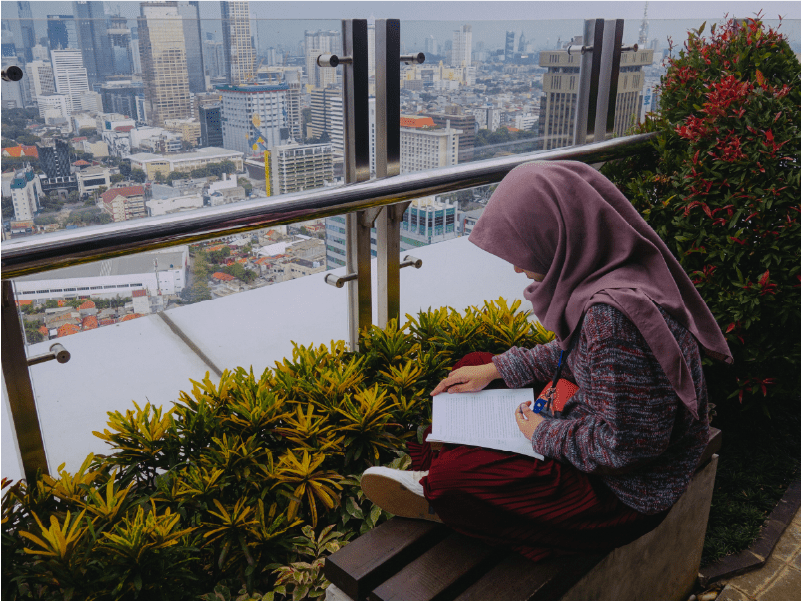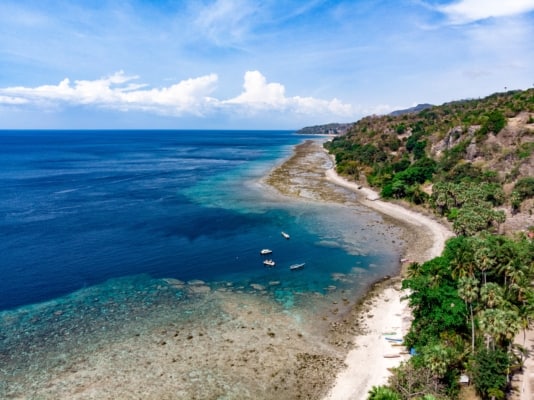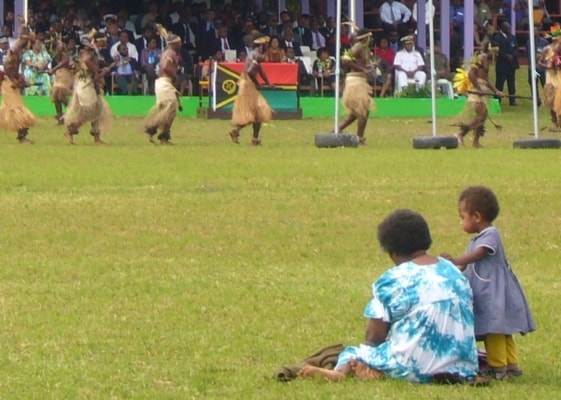These key findings and early insights from the DLP project ‘Non-elite pathways to women’s political leadership’ follow on from part 1 of this research note.
Catatan dari penelitian ini juga tersedia dalam bahasa Indonesia. Silakan unduh dokumen PDF di sini.
Encouragement matters for whether women from the grassroots step forward.
Media tends to focus on women from elite and dynastic backgrounds, particularly in higher levels of representation. In the Local People’s Representative Councils, women come from a range of backgrounds, with ‘pipeline’ activities including: nurse, midwife, village head, credit union workers, religious leaders and so on. Often the difference between those who embark on a political career, and those who do not, is simple encouragement. Women referred to motivating remarks, or a time when someone identified their political potential, as key moments that inspired them to join politics. For others, involvement in a social issue provided the impetus. The inverse is that many women leaders at the grassroots have not yet received such encouragement, and are hence much less likely to put themselves forward. Others have received encouragement from political parties, but consider their ideals to be incompatible with them, and hence do not take up the invitation.
Women’s cultural roles in the community are more a help than hindrance to political activity.
Respondents noted women’s roles in the community helped them win elections. The custom of women visiting families, particularly in rural areas, allowed them to develop strong connections to many households. Rather than see their gender as a barrier to electability, respondents found their gender to be politically useful: something that political parties used, but not always in ways that benefit women candidates. At the same time, not everyone accepts women political leaders, and there remain gendered ideas around leadership that disadvantage women. Further, men can also connect with community members through different forums, for example, holding meetings in coffee shops. More research is required as to how men and women differently develop community links, and how this shapes their political opportunities.
Negotiations with family members determine women’s political opportunities.
The household is a strategic site for women’s political engagement, important for early socialisation, motivation, and financial resources. The criticality of the household is one major factor as to why the majority of women representatives come from political families. At the same time, gendered roles and identities can be a barrier. The honoured role of women as mothers can restrict them to the household. Caring obligations do not necessarily finish when adult children become independent, as there are expectations to care for grandchildren. For women who wish to enter politics, negotiations with family is essential, and the willingness of fathers, husbands and children has a large impact on political possibilities.
Quotas have both positive and negative impacts on women’s political activities.
The necessity for parties to include women on every third position on a ballot paper has obliged parties to reach out to women who are active at the grassroots. Quotas have thus created opportunities for women to contest elections. At the same time, parties often use women, placing them in unwinnable positions on the ticket, while benefiting from their campaigning that increases the overall party vote. Women navigate this terrain, using the instruments available to them to realise their political and social goals.
What’s next?
The case study interviews have been exploratory, revealing distinct pathways to politics, and a range of factors that have encouraged/discouraged women activists from seeking a political career. Case study interviews do not, however, allow us to understand the diverse ways that women understand and experience these issues, particularly important in contexts such as Medan where religion, ethnicity, class and so on, shape political possibilities.
The next stage of research will be Focus Group Discussions (FGDs) to add further depth to our understanding (planned February 2021). Our preliminary research has identified themes worth further interrogation, and helped us pinpoint which groups of women to hold FGDs with. In Medan these include: students, party cadre, midwives, religious leaders, and NGO workers. Based on the findings from the interviews and FGDs in Indonesia and Sri Lanka, we will develop a series of survey questions to determine how widespread and consistent the factors facilitating/preventing grassroots women entering formal politics are, and how they vary across intersecting identities. Reflexive Research Dialogues will provide opportunities for stakeholders to make sense of research findings, and reflect on what they mean for policy and practice.
The exploratory approach of the qualitative interviews has yielded data that add nuance, or correct existing understandings in the literature. Based on the rich insights elicited through the case study interviews, we will be writing primarily about three topics: a) money politics, b) infrastructure and apprenticeship, and; c) student politics.
This research note was written by the Indonesian research team, please email Asima Siahaan or Tanya Jakimow for further information.












